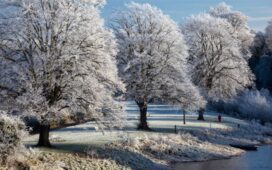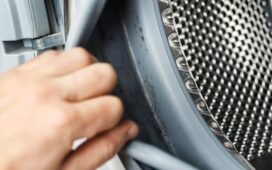After ski season was cut short in March, resorts across Europe are keen to get skiers back onto the slopes for the 20/21 season.
Contactless services and the end of apres-ski are some of the measures that have been introduced to ensure holidaymakers feel safe and secure.
So what will ‘the new normal’ ski holiday look like?
Social distancing and Hygiene
On the slopes, it’s normal to wear face coverings and gloves to protect yourself from the cold. But from now on, expect to wear masks on all covered cable car cabins, ski buses, in sports shops, taxis, and other public facilities, which will all be frequently disinfected.
Skiers will be encouraged to regularly wash their hands and use sanitising gel provided at hygiene stations on the mountain.
Hire shops will thoroughly clean all equipment before and after use and some may offer a hairnet to put between your head and hired helmets.
Whilst most resorts do not plan on introducing passenger number restrictions on cable cars and on the slopes, there will be one-way systems for queues, and the Italian resort of Alta Badia says their cable cars will travel at the highest possible speed in order to reduce the time skiers spend in a closed environment.
French resort, La Plage is installing digital boards across the ski area to direct skier flows, to avoid crowded areas. They also have an app (Yuge) which shows the waiting time at lifts, the most crowded slopes, and suggests itineraries.
Skiers are being encouraged to buy ski passes online to beat the queues and prevent crowds. In Austria, passes can be collected from special pick-up boxes.
Dining
Most mountain huts on the slopes offer table service and have large sun terraces to help keep a distance. The numbers entering bars and restaurants will also be limited to allow social distancing.
Masks will be compulsory when not seated at your table, and seating will be arranged to ensure distancing of at least 1 metre between different groups.
Many resorts are working on introducing technology to make contactless and cashless payments available throughout both villages, and on the mountain, including in lift stations, restaurants, bars, and hotels.
Apres Ski
Apres-ski has been banned in Austria, with bars and restaurants only able to serve drinks and food to seated customers.
Austria Chancellor, Sebastian Kurz reassured visitors that “skiing, eating out, nature, outdoor activities, shopping, not just in ski resorts but also in cities, a wellness vacation in Austria, culture tourism. All that will be possible this coming winter.”
In Italy, expect to have your temperature taken in bars and shops when entering.
Elsewhere, no resort has given any specific detail, but crowded apres-ski bars with people dancing on tables in ski boosts will likely be a thing of the past, with post skiing drinks probably becoming a quieter affair.
Accommodation
In France, staying with friends or family, at your second home, in a gîte or a holiday rental, is allowed without exceptions.
Health measures apply in all shared accommodations such as hotels and inns, and hosts are expected to provide guests with all protocols details at the time of reservation.
Online check-in has been introduced to minimise waiting times at reception.
In Austria, there is no limit on how many people from different households can share accommodation, but in dormitories such as mountain huts, a 1.5-metre distance must be kept between those who do not live in the same household.
Many accommodation hosts are also reviewing cancellation conditions to offer more flexible stays and many operators of catered chalets have reduced their program. Some are offering contactless service to their customers with all the cooking, cleaning, and other services provided without the guests ever seeing a member of staff.
Ski Schools
Ski schools in France will maintain social distancing regulations, with hand sanitizer provided and daily sanitization of spaces and equipment. Masks will be mandatory for instructors and for students aged 11 and over .
In Austria, ski courses will be limited to 10 participants per group.
COVID Testing
Guests who arrive without a negative Covid-19 test that is less than 72 hours old at the Tirolean ski resort of Ischgl can get tested at the local screening station, or in some cases at their hotel, and can request a test before leaving the village. Ski instructors, as well as hotel, restaurant and lift staff will be regularly tested.
Sewage monitoring is also being carried out to enable the early identification of a potential infection.
Certification
In France, national certification and local charters have been developed to attest to the health measures implemented at the destination.
Avoriaz was the first resort to obtain the ‘Safeguard’ label, which guarantees that all hygiene and prevention protocols are in place at resort level as part of the fight against Covid-19.
The Dévoluy and Puy-St-Vincent ski areas have the AFNOR ‘Verification of health measures against Covid-19’ label.
The Jura Mountains have the ‘Covid Free’ label.
The resorts of Haute-Maurienne Vanoise, Val d’Arly Mont-Blanc, Val Thorens and Les Deux Alpes have united their service providers around a local certificate.
In Switzerland, the ‘Clean & Safe’ campaign aims at boosting traveller confidence in the Alpine nation.
The campaign includes a ‘Clean & Safe’ stamp that will be adopted by hotels, restaurants, and transport providers that commit to a new set of Covid-19 health and safety guidelines
Official guidance for the ski season in Italy is yet to be announced.






